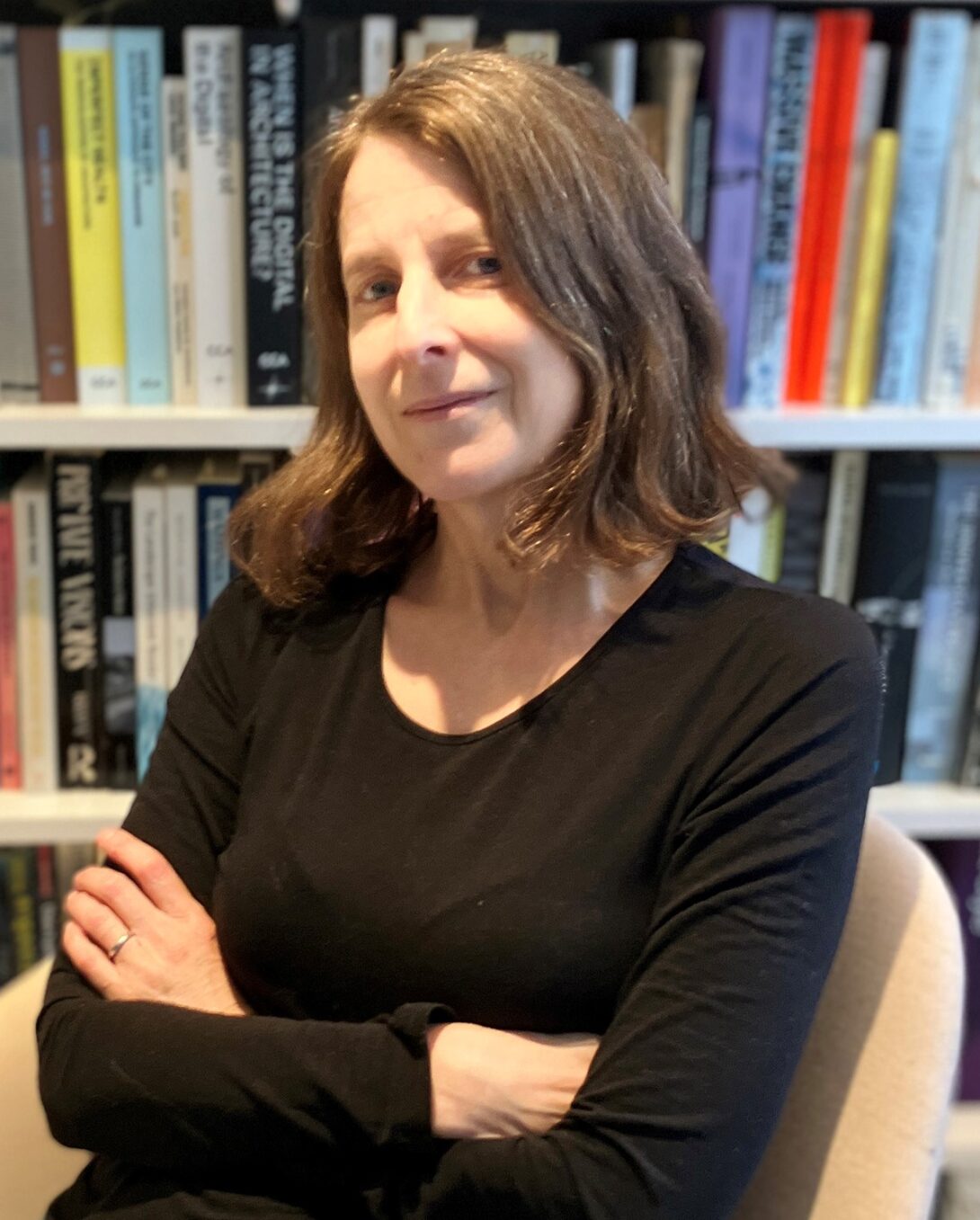Fellows Lectures
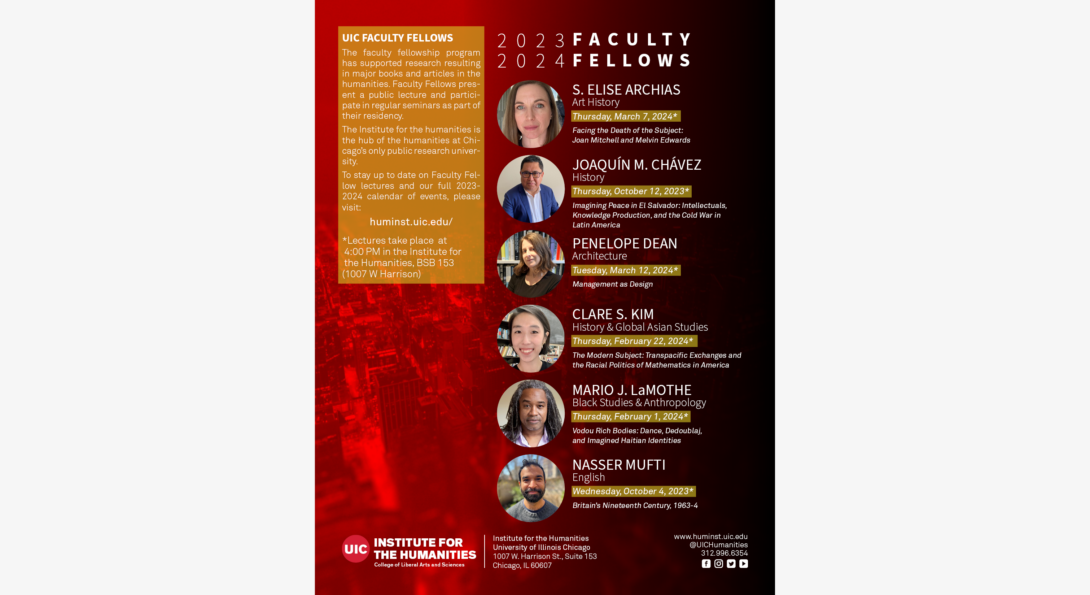
FELLOWS LECTURES Heading link
Fellows make visible the interdisciplinary community at the University of Illinois at Chicago. While in residence at the Institute, the fellows deliver public lectures on their research.
Nasser Mufti, English
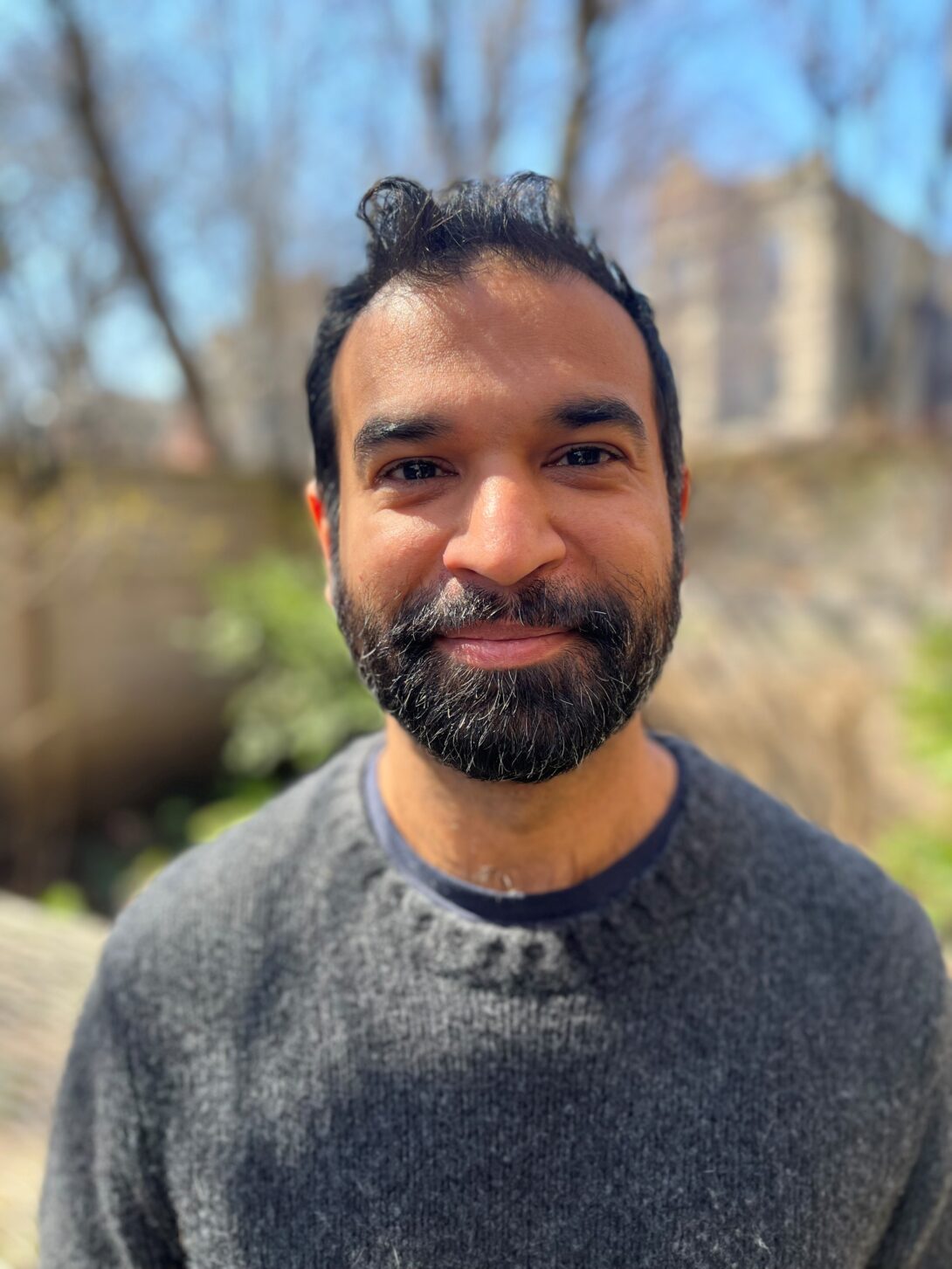
“Britain’s Nineteenth Century, 1963-4”
October 4, 2023
4:00PM – 6:00PM
Joaquín M. Chávez, History
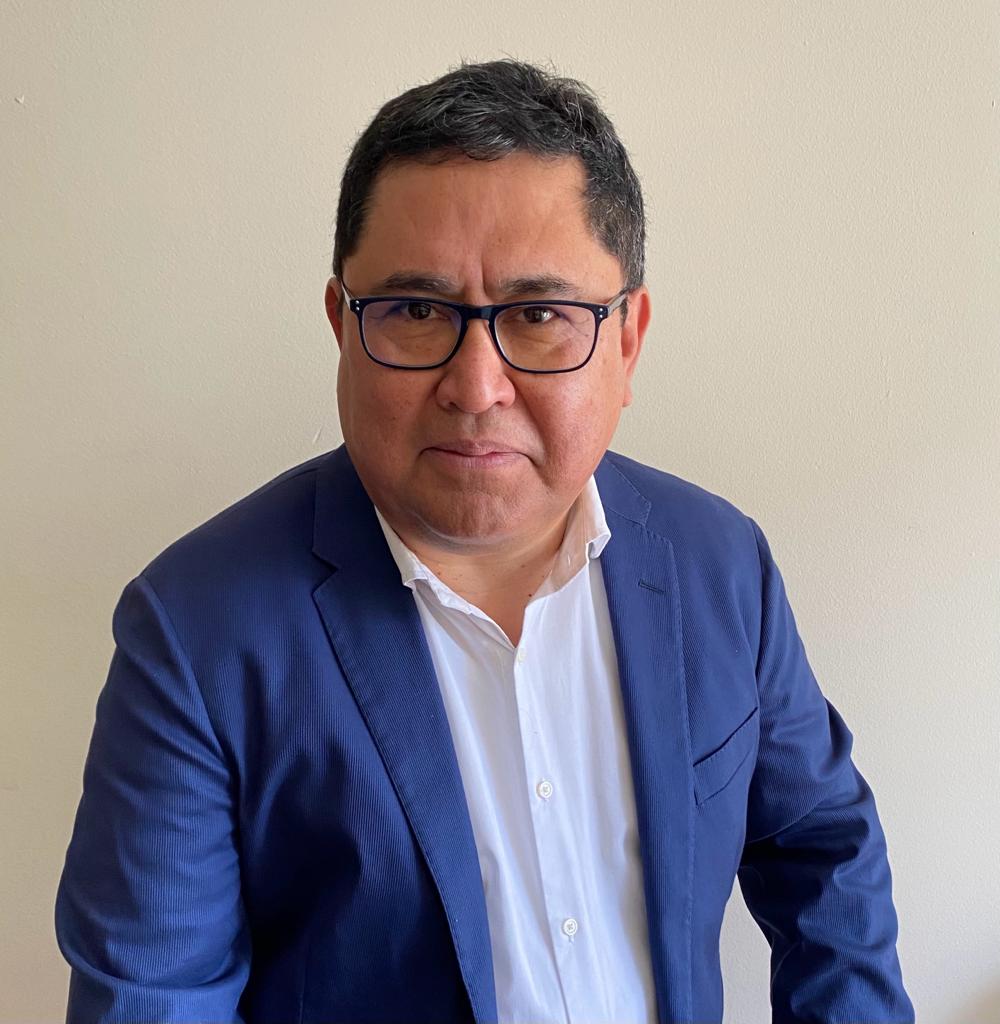
“Imagining Peace in El Salvador: Intellectuals, Knowledge Production, and the Cold War in Latin America”
October 12, 2023
4:00PM – 6:00PM
Mario J. LaMothe, Black Studies and Anthropology
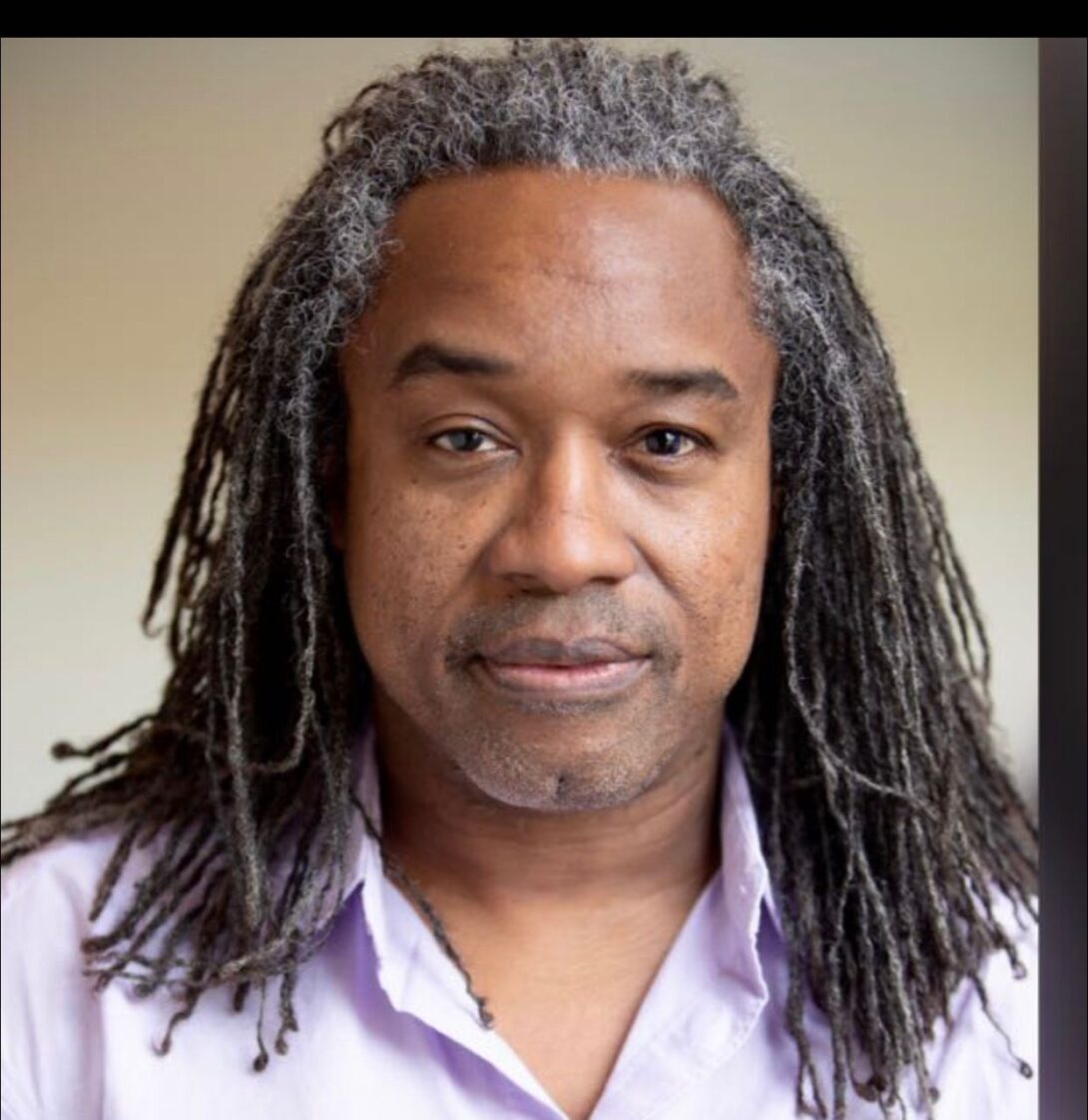
“Vodou Rich Bodies: Dance, Dedoublaj, and Imagined Identities”
February 1, 2024
4:00PM – 6:00PM
Clare S. Kim, History and Global Asian Studies
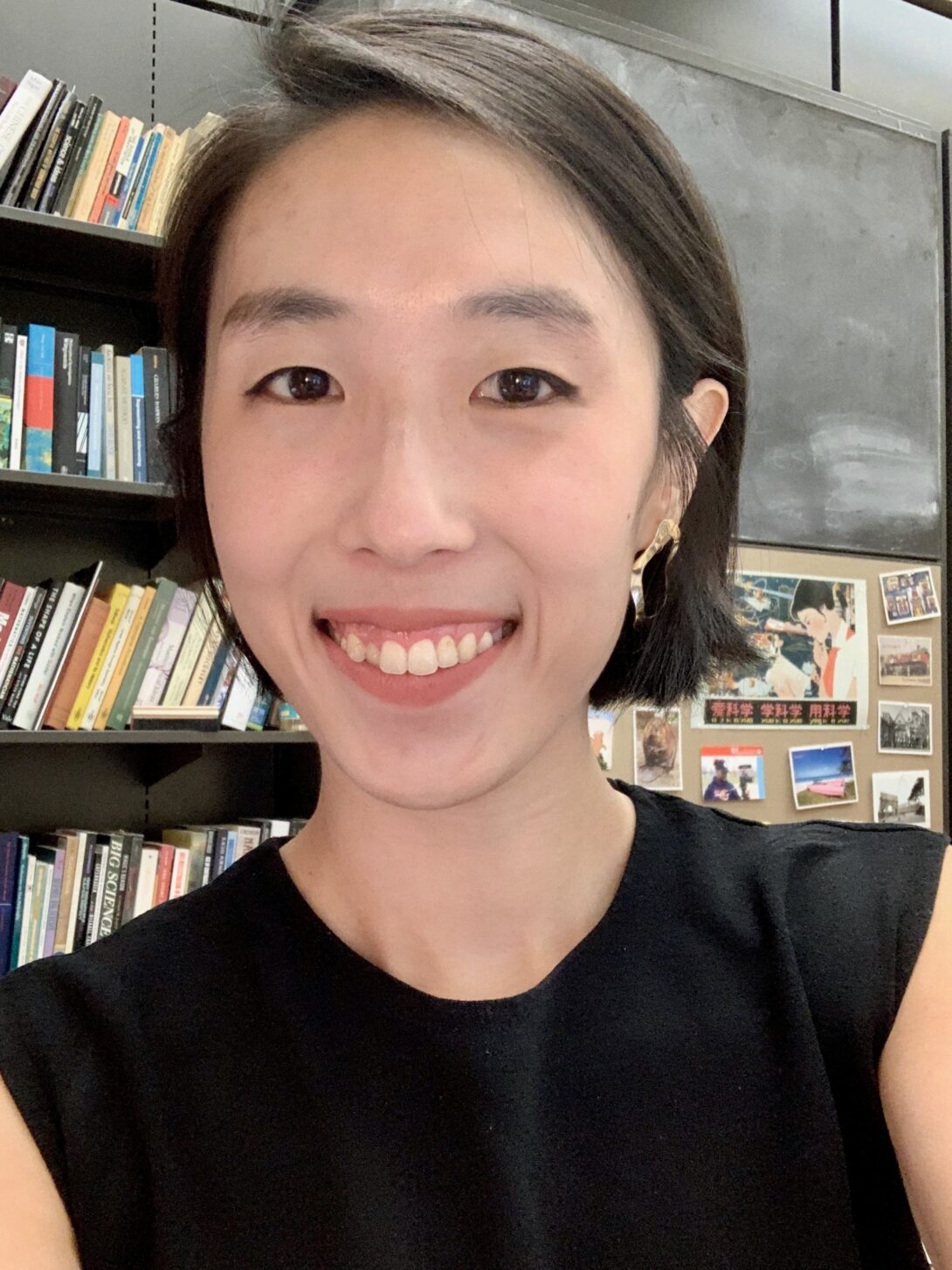
“The Modern Subject: Transpacific Exchanges and the Racial Politics of Mathematics in America”
February 22, 2024
4:00PM – 6:00PM
S. Elise Archias, Art History
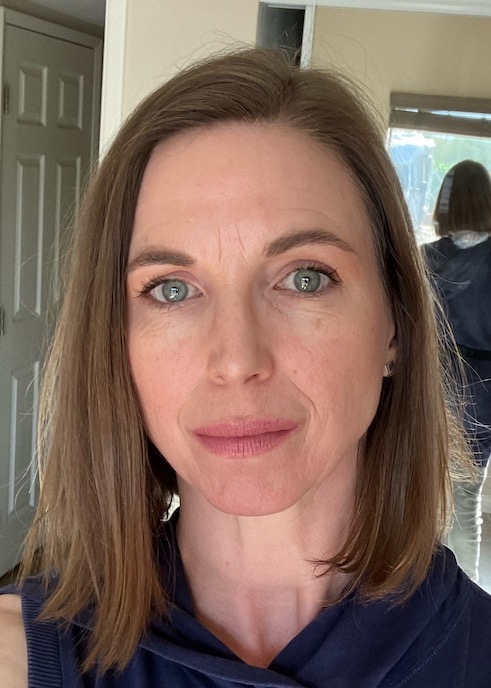
“Facing the Death of the Subject: Joan Mitchell and Melvin Edwards”
March 7, 2024
4:00PM – 6:00PM
Margarita Saona, Hispanic and Italian Studies
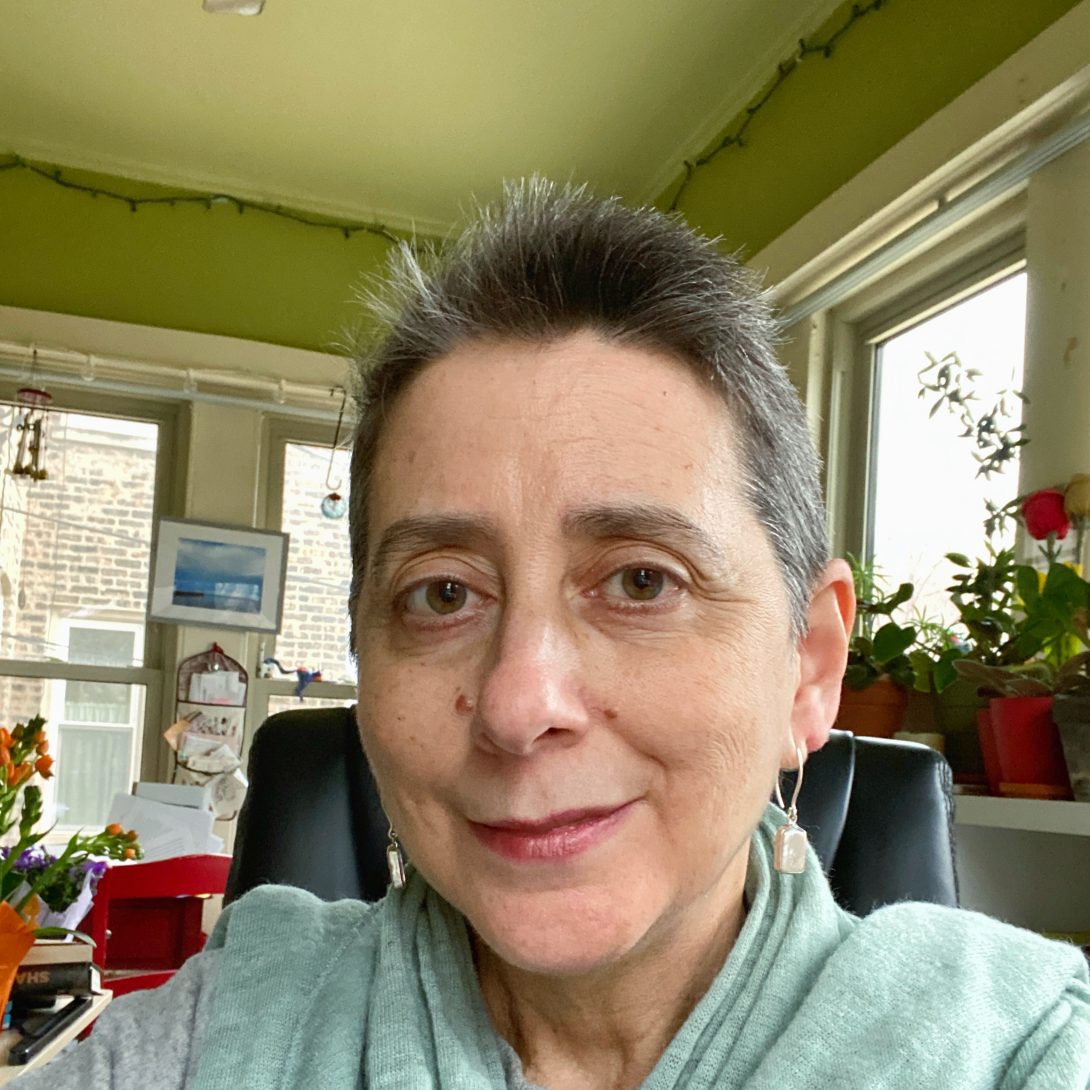
“Entranced Hearts”
September 27, 2022
4:00 PM – 6:00 PM
Professor Margarita Saona studied linguistics and literature at Pontificia Universidad Católica del Peru and received a Ph.D. in Latin American literature from Columbia University in New York. She is interested in issues of gender, memory, cognition, empathy, and representation in literature and the arts. She has published numerous articles, three books on literary and cultural criticism, Novelas familiares: Figuraciones de la nación en la novela latinoamericana contemporánea (Rosario, 2004) and Memory Matters in Transitional Perú (Londres, 2014), and Despadre: Masculinidades, Travestismos y Ficciones de la Ley en la Literatura Peruana, and three books of short fiction, Comehoras (Lima, 2008), Objeto perdido (Lima, 2012), and La ciudad en que no estás (2021). Her book of poems, Corazón de hojalata/Tin Heart (Chicago, 2017), received the El Comercio, Luces award for the best book of Peruvian poetry in 2017. Her current project, Corazón en trance, is a multi-genre rendition of her experience as a heart transplant recipient.
Keith Budner, Hispanic and Italian Studies
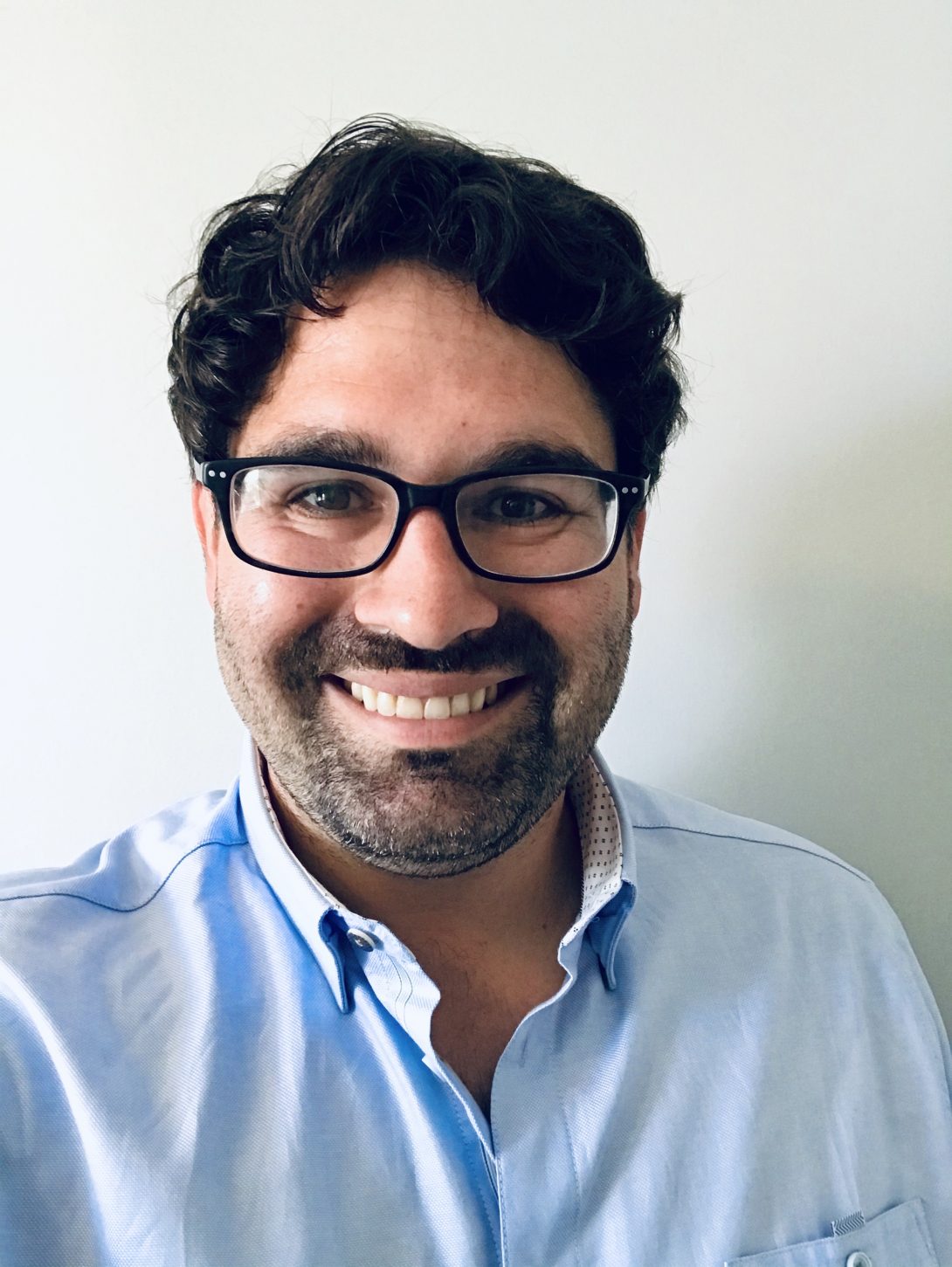
“Palimpsest Nation: Roman Hispania and the Converso Renaissance”
October 11, 2022
4:00 PM – 6:00 PM
Keith Budner specializes in the literature and culture of late medieval and early modern Spain, which he situates in a comparative framework alongside Latin, Hebrew, Classical Greek and Italian. He comes to UIC after a year at Berlin’s Freie Universität, and prior to that lived in the Bay Area and Madrid. He has published on the role of Classical myth and Renaissance painting in Cervantes’s Don Quijote and how late medieval romances responded to the “Morisco Question.” His first book project, Classicism and Convivencia: How Sephardic and Judeoconverso Humanists Invented Spain, argues that the cultural revival of the Roman colony of Hispania enabled new modes of national belonging, creating communities and identities no longer defined by blood lineage but instead centered on shared intellectual activity and literary production. Keith also leads an ongoing Digital Humanities project on the “Printer-Scholars” of the early modern world and is exploring new interests in cartography, ancient to early modern, and the history of boardgames.
Rachel Goodman, Philosophy
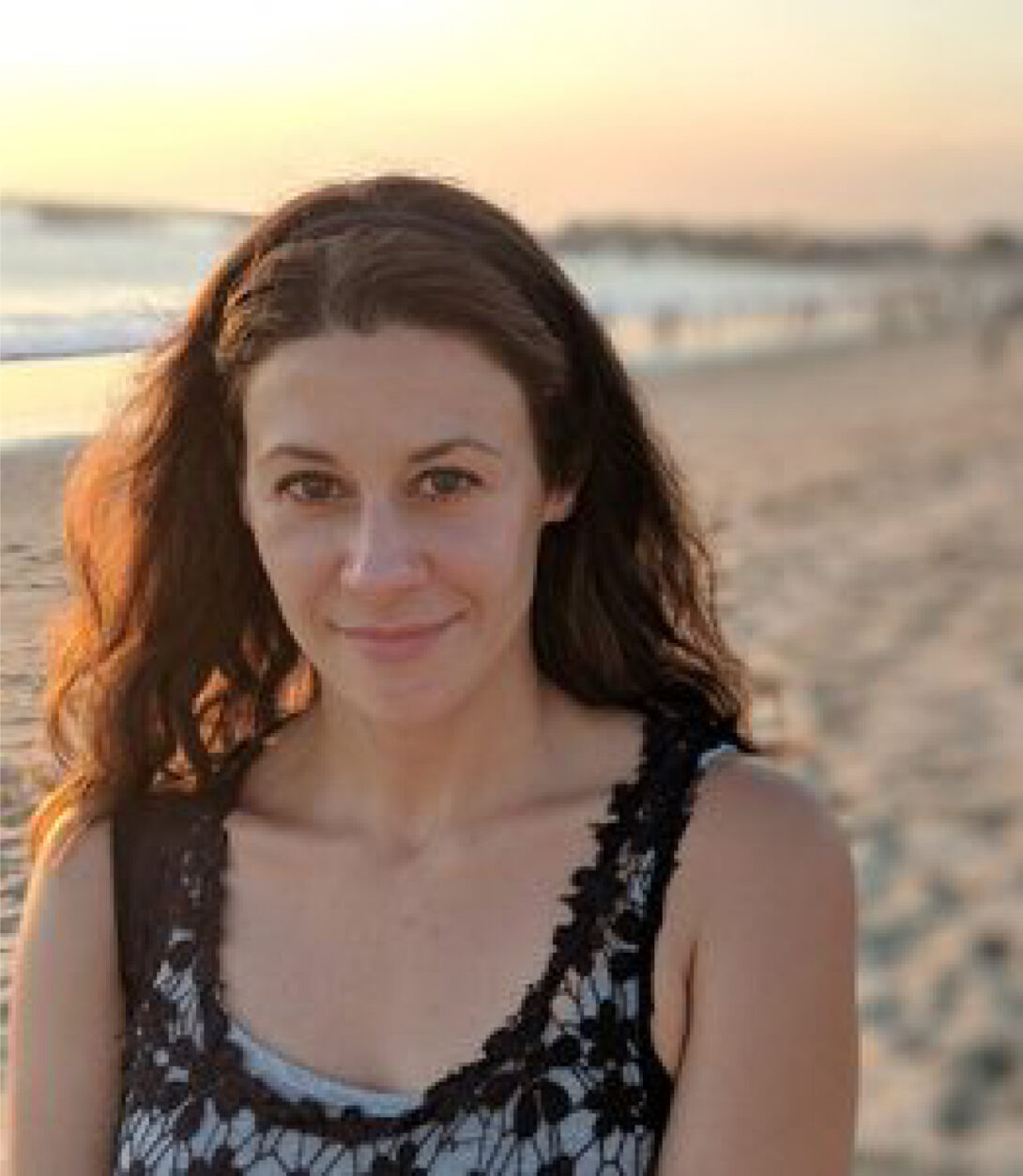
“Mental Files and Singular Thought”
February 7, 2023
4:00 PM – 6:00 PM
RACHEL GOODMAN is an Associate Professor. She received her PhD from the University of Chicago and, before coming to UIC, was an Assistant Professor at the University of Nebraska, and the University of Wisconsin Milwaukee. Rachel’s research interests lie in the philosophy of mind and language, with a focus on the nature of representation. She’s interested in questions about mental reference and so-called ‘singular’ (or de re) thought, along with connected issues in the philosophy of language. She’s also interested in the notion of a mental file, in explanations of de jure coreference in language and thought, in different kinds of representational format, and in the format/ content distinction.
Gayatri Reddy, Gender and Women’s Studies & Anthropology
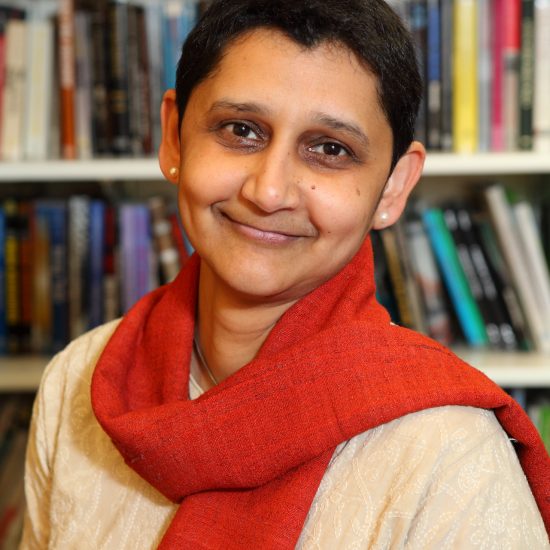
“Our blood is becoming white. Race, Religion, and the Politics of Belonging for Siddis in Hyderabad, India”
February 16, 2023
4:00 PM – 6:00 PM
Gayatri Reddy is an anthropologist, feminist, writer, and teacher. She got her B.A from the University of Delhi, her Masters’ in Public Health and her Ph.D in Anthropology from Emory University. She is a currently an Associate Professor of Gender and Women’s Studies, Global Asian Studies, and Anthropology at the University of Illinois Chicago. Her research, teaching and community engaged work lie at the intersections of sexuality, gender, race, and the politics of subject and community formation in India and the Indian diaspora. She is the author of With Respect to Sex: Negotiating Hijra Identity in South India (University of Chicago Press, 2006), an ethnography of hijras, part of the so-called “transgender” community in India. Like the larger corpus of her work, this book locates such figures of sexual difference, and the domain of sexuality more generally, within a broader field of social difference, exploring the intersections of gender and sexuality with religion, race, ethnicity, and class in South Asia and its diaspora. More recently, she has begun a research project exploring the contextual meanings of blackness in contemporary India through the lens of Indian Ocean world “African” migrations to India in the wake of slavery’s abolition. Tracing these historical routes and geopolitical mappings through the prism of masculinity, this project historically and ethnographically explores the complex ways in which race, blackness, and masculinity are constructed through global and local contours of difference to shape contemporary belonging. In addition, she is also working on a public history project in Chicago (with Anna Guevarra), visualizing displacements of people and struggles over land, housing, and community stemming from urban renewal policies in the northside Chicago neighborhood of Uptown. The project draws on long histories of intentional place-making, multiracial solidarity, and working-class resistance to such policies, raising critical questions about how we understand urban “development” or renewal, who this development is for, and how it is structured.
Jonathan Connolly, History
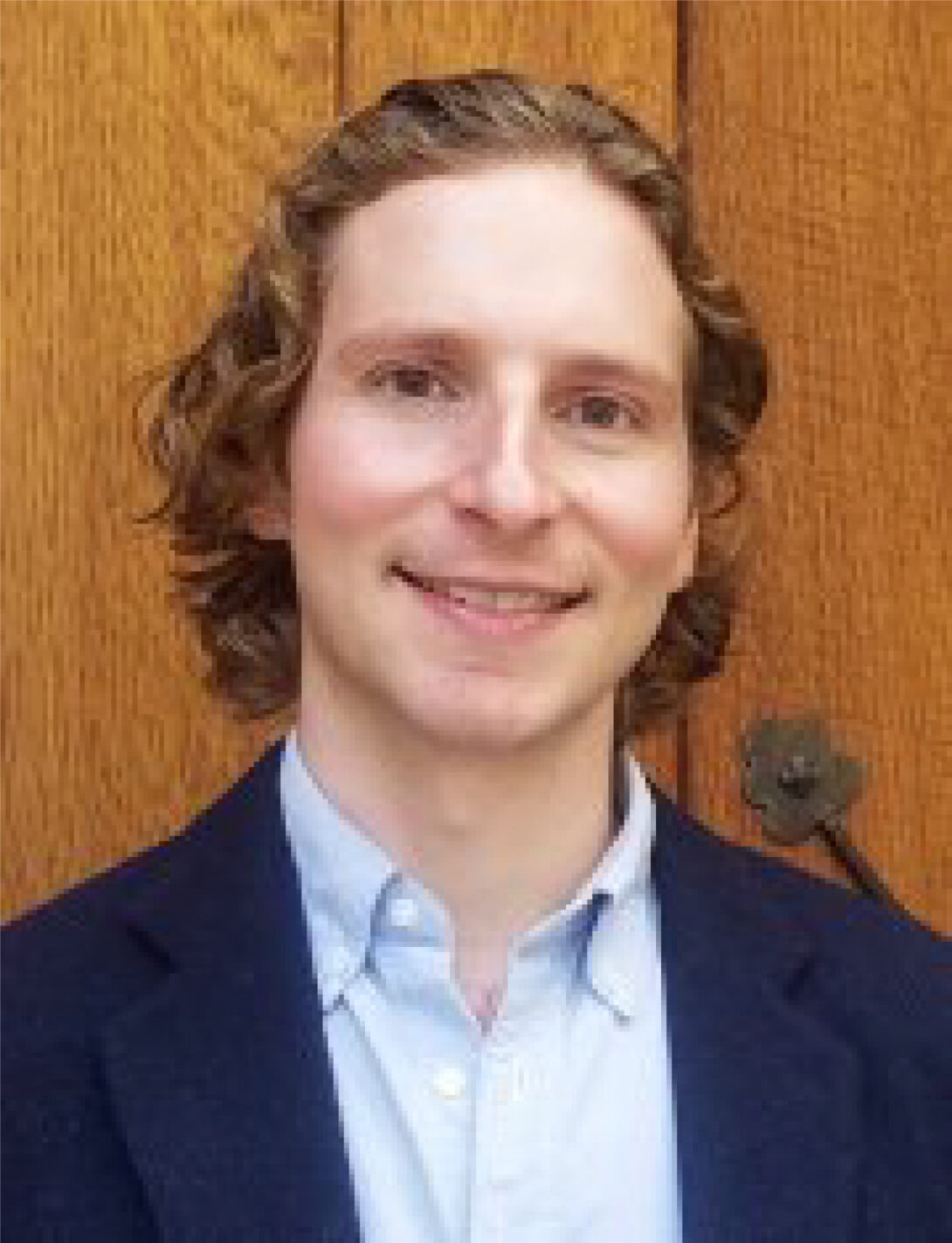
“Indenture as Free Labor: Migration and Freedom in the Era of Emancipation”
March 2, 2023
4:00 PM – 6:00 PM
Jonathan Connolly is an assistant professor in the Department of History. He is an historian of the British empire with transnational interests in migration, law, and the history of emancipation. His research concerns antislavery, imperial political and legal culture, and the category of free labor in Britain, the Caribbean, and the Indian Ocean worlds during the nineteenth century. He is writing a book about Indian indentured labor migration in this context, and has published related work in Past & Present and Slavery & Abolition. He is the recipient of fellowships and awards from the Mellon Foundation, the North American Conference on British Studies, and the American Society for Legal History, among others. Prior to UIC, Connolly held postdoctoral fellowships at the Mahindra Humanities Center at Harvard University and at the Shelby Cullom Davis Center at Princeton University.
Rahim Kurwa, Criminology, Law, and Justice
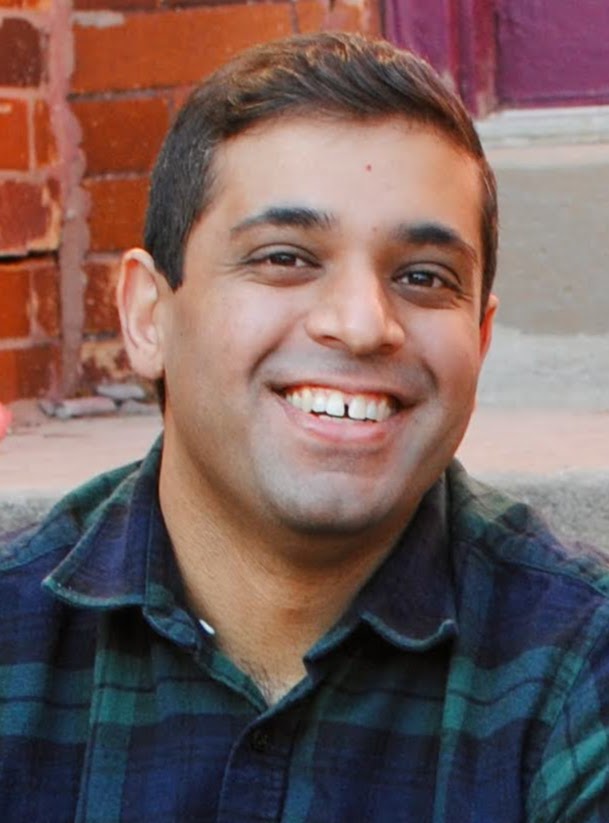
“Apartheid’s Afterlives: Policing Black Life in the Antelope Valley”
April 12, 2023
4:00 PM – 6:00 PM
Rahim Kurwa is an Assistant Professor in the Department of Criminology, Law, and Justice and Department of Sociology (by courtesy) at the University of Illinois at Chicago (UIC). His work is broadly focused on the policing of housing, and he has published scholarship on this topic in Du Bois Review, Housing Policy Debate, City and Community, and Feminist Formations. His book project, Apartheid’s Afterlives: Policing Black Life in the Antelope Valley, traces the Black history of Los Angeles’ northernmost outpost, known as the Antelope Valley, and shows how pre-1968 methods of racial segregation in this region have been replaced today by policing. His other interests include the family implications of the policing of housing assistance, the interrelatedness of policing and segregation, and the history of policing in public housing and its successor programs. He currently serves as the chair of the Poverty, Class, and Inequality Division of the Society for the Study of Social Problems. He received his PhD in Sociology from the University of California at Los Angeles in 2018.
González, Fredy, Associate Professor, Global Asian Studies * History
Fredy González, Departments of Global Asian Studies and History
“Building a Global Brotherhood: The Chee Kung Tong, 1917-1925”
Thursday, September 23, 2021 at 4 PM
Location: Room 302 SCE, 750 South Halsted, UIC, and via Zoom
In this lecture, Dr. González will show how the Chee Kung Tong, a Cantonese sworn brotherhood, forged a transnational community through the circulation of ideas, people, and resources. The result was a vibrant Cantonese migrant network encompassing the Americas, Southern Africa, Western Europe, and Australasia.
Fredy González is an Associate Professor of Global Asian Studies and History. His research focuses on Asian diasporas in Latin America, particularly on the Chinese diaspora. Before coming to UIC, Professor González was a professor of Latin American history at the University of Colorado Boulder, where he also taught courses on immigration history.
His first book, Paisanos Chinos: Transpacific Politics among Chinese Immigrants in Mexico, was published in 2017 with the University of California Press. His articles have appeared in the Western Historical Quarterly and the PRC History Review and won the Bert M. Fireman and Oscar O. Winther awards from the Western History Association.
His current project is a global history of the Chinese sworn brotherhood, the Hong Men Chee Kung Tong. A fraternal organization with chapters around the world, the Chee Kung Tong helped far-flung members of the Cantonese diaspora acclimate to their places of settlement. Remembered in parts of the West as a criminal organization, in mainland China, it is remembered as the precursor to the China Zhi Gong Party, one of the eight minor parties in the People’s Republic of China. Professor González plans to use the history of the Chee Kung Tong to illustrate how different nodes of the Chinese diaspora interacted with each other; political activity and organization among Chinese overseas; and the complicated relationship between Chinese overseas and China and Taiwan.
His work has been supported by a Fulbright Scholar Fellowship in Taiwan, as well as an IIE Fellowship for Graduate Study and a Fox Fellowship in Mexico.
Díaz Martín, Esther, Assistant Professor Latin American and Latino Studies * Gender and Women’s Studies
When: Monday January 31, 2022, 4pm
Location: via Zoom (link below)
“Feminist Politics in Chicana/Latina Podcasting”
Between 2015-2016, there was a marked increase in podcasts hosted and produced by Latinas voicing intersectional perspectives. This talk discusses three prominent Chicana/Latina podcasts based in Southern California: Super Mamás, Locatora Radio, and Chicana M(other)work. Using a nepantlera critical listening methodology, which attends to the gendered performance of sound that marks feminist discourses, I discuss how Chicana/Latina locutoras voice and sound out strategic self-representations that reflect the politics of their sitio y lengua within their varied cultural contexts.
Join Zoom Meeting
https://uic.zoom.us/j/83083109455?pwd=VmVqa2Q0bWVXWGx4WityM01XT25Ddz09
Meeting ID: 830 8310 9455
Passcode: 1u38yysr
Esther Díaz Martín is an Assistant Professor in Latin American and Latino Studies and Gender and Women’s Studies at UIC. She received her Ph.D. in Iberian and Latin American Languages and Cultures from The University of Texas at Austin (2018). Her publications on the topic of feminism in popular culture appear in Diálogo, Spanish and Portuguese Review, Chicana/Latina Studies, and Voices from The Ancestors: Xicanx and Latinx Spiritual Expressions and Healing Practices (ed. Medina and Gonzales, 2020). Her current book manuscript titled, “Latina Radiophonic Feminism(s): Sounding Gender Politics into the Digital Age,” features the stories and politics of contemporary Chicana/Latina DJ and talk radio hosts in U.S. Spanish-language radio and podcasting. This interdisciplinary project draws from radio, popular culture, and sound studies re-articulating these fields through a Chicana feminist framework that centers the gendered voice as an entry point to tune-in to Latina politics.
Weber, Rachel, Professor, Urban Planning and Policy (College of Urban Planning and Public Affairs)
When: Thursday, February 17, 2022 at 4 PM
Location:
The Urban Oracular: Prediction and Speculation in Real Estate
In this talk, I discuss the significance of forecasting models to capital investment in contemporary built environments. Basing my work on several years of textual and ethnographic research tracing the trajectories of predictions, I argue that forecasting practices neither accurately represent the future nor effectively reveal to investors those opportunities with the most potential for profit. Instead, forecasts are essential instruments of real estate finance because they help create and fortify the collective subjectivities and shared imaginaries necessary for speculators to mimic each other’s behavior and relate to each other through the simultaneity of time and place.
Zoom link:
https://uic.zoom.us/j/82214129246?pwd=WERBcFlvZmtRczEwamFCbjJ5YTM3dz09
Meeting ID: 822 1412 9246
Passcode: 40QrFN2S
Dr. Rachel Weber is Professor and Director of Graduate Studies in the Urban Planning and Policy Department at the University of Illinois at Chicago where she teaches courses and conducts research in the fields of economic development, real estate, urban politics, and public finance. She is the co-editor of the Oxford Handbook of Urban Planning, a compilation of 40 essays by leading urban scholars. Her latest book, From Boom to Bubble: How Finance Built the New Chicago (University of Chicago Press) won the Best Book Award from the Urban Affairs Association in 2017. She is the author of over 45 peer-reviewed journal articles, as well as numerous book chapters and published reports. In addition to her academic responsibilities, she has served as an advisor to planning agencies, political candidates, and community organizations on issues related to financial incentives, property taxes, and neighborhood change. She was appointed to then-presidential candidate Barack Obama´s Urban Policy Committee in 2008 and by Chicago Mayor Rahm Emanuel to the Tax Increment Financing Reform Task Force in 2011.
Magarik, Raphael, Assistant Professor, English
When: Wednesday, February 23, 2022, 4pm.
Location: Institute for the Humanities, 701 South Morgan, Stevenson Hall Lower Level, UIC, and via Zoom (link below)
“Free Indirect Revelation: Secularism, Narratology, and Peasant Revolts in Luther’s Lectures on Genesis”
The great, early Reformer Martin Luther is often thought to have advocated a simple, direct relationship between the religious believer and the Bible. In this talk, I will show how in fact, Luther’s Bible (I focus on Genesis) is intensely and complexly mediated by a web of ministers: characters within the story, sixteenth century preachers like Luther himself, and most importantly, the Mosaic narrator. This argument exemplifies my book project’s larger claim: Protestant commentators and poets newly imagined the Bible as containing a doubled structure of author and narrator—a way of thinking about literary narrative we now take for granted, but which they helped invent. While I chart the invention of basic, modern ways of thinking about narration, I also show how that story is entangled with a process of secularization—in this case, a hierarchical, elite disciplining of unruly religiosity.
Join Zoom Meeting
https://uic.zoom.us/j/82750699378?pwd=Q2xCeGtoN2NtRXYyVEVHT3dHTlJXQT09
Meeting ID: 827 5069 9378
Passcode: kk0dr0qm
Raphael Magarik studies sixteenth and seventeenth century British literature, with interests in secularization and religion, theories of narration and the pre-history of the novel, labor and theatrical collaboration, Christian Hebraism and biblical studies, and early modern women’s writing. His first book project, “Who Narrates the Bible? Reformation Narratology and English Biblical Poetry,” argues that early modern scholars invented the idea of the biblical narrator, which in turn offered English poets models for their own, biblically themed poems and for fictive invention. He has published work from that project in Reformation, and he has articles in Milton Studies, Notes & Queries, and the Journal for Early Modern Cultural Studies, as well as an article forthcoming in PMLA. He has also written popularly, including for The New Republic, The Atlantic, The Daily Beast, Jacobin, and Haaretz. He tweets occasionally @raffimagarik.
Dubin, Nina, Associate Professor, Art History (College of Architecture, Design, and the Arts Administration)
When: Wednesday, March 9, 2022, 4pm
Location: Institute for the Humanities, 701 South Morgan, Stevenson Hall Lower Level, UIC
“Eros, Inc.: Cupid, Currency, and the Crash of 1720”
Abstract: In the midst of the world’s first international bubble, an eighteenth-century French song proclaimed Cupid the god of the stock exchange. The popular verse circulated alongside other cultural efforts (arguably ongoing) to make sense of a boom and bust financial system by drawing on the equally mysterious workings of love. As exemplified in the artworks discussed in this talk, the most notoriously volatile of deities was enlisted to embody both the tumultuous expansion of a credit economy and the trademarks of an overheated market.
Nina Dubin is Associate Professor of Art History and an affiliated faculty member in the Department of French and Francophone Studies, specializing in French eighteenth-century art. She is the author of Futures & Ruins: Eighteenth-Century Paris and the Art of Hubert Robert (Los Angeles: Getty Research Institute, 2010; 2012) and co-author of Meltdown! Picturing the World’s First Bubble Economy (Turnhout, Belgium: Harvey Miller/Brepols, 2020). Her recent research has been supported by the Samuel H. Kress senior fellowship from the Center for Advanced Study in the Visual Arts at the National Gallery of Art, the Florence Gould Foundation fellowship from the Clark Art Institute, and the Robert Sterling Clark Visiting Professorship at Williams College. Her book in progress, “Erotic Economy: Love, Trust, and Risk in French Art, 1720-2008,” investigates the participation of French art in the consolidation of a trust economy.
Kendall, Matthew, Assistant Professor, Polish, Russian, and Lithuanian Studies
When: Tuesday, March 15, 2022, 4pm
Lecture in person and on zoom (link below).
Location: Institute for the Humanities, 701 South Morgan, Lower Level Stevenson Hall.
Sound Works: Sonic Inscription as Soviet Writing in Mikhail Romm’s Oral Stories
In 1921, the poet Aleksandr Blok looked back at the dissolved Russian empire from his deathbed by writing that “for a long time, no new sounds have been heard…it would be blasphemous and deceitful to even consider how a silent space once sounded.” Few writers, however, heeded Blok’s warning. On the contrary, many were thrilled to inscribe their voices into gramophone discs, and several used their writing to describe or even mimic the novel sensations associated with reproduced sound. This talk will explore similar, complicated intersections between sound recording and the Soviet literary establishment, and it will argue that new techniques for capturing and replaying sound altered Soviet conceptions of preservation and textuality. To do so, I will offer a reading of Mikhail Romm’s Oral Stories, a memoir that Romm (who primarily worked as a film director) recorded with a magnetic tape recorder, which shows how Soviet ideas of reading, writing, and knowing formed in dialogue with the emergence of sound recording.
Join Zoom Meeting
https://uic.zoom.us/j/83942114834?pwd=N1hVTjAwVHBlbk1CVTA5OEdOVlNCQT09
Meeting ID: 839 4211 4834
Passcode: 1t1eAbMe
Matthew Kendall is an Assistant Professor in the Department of Polish, Russian, and Lithuanian Studies. His first book project, Sound Works: The Aural Imagination of Soviet Literature and Film, uses methods from sound studies and media theory to argue that sound recording significantly impacted Soviet conceptions of artistic production and reception. His writing has been published by the Slavic and East European Journal and NLO, and his recent article on Dziga Vertov’s cinema is forthcoming in Russian Review. Alongside his research into the history of sound and listening, he has taught and written on topics ranging from the prose and poetry of Russian romanticism to 3D cinema and the politics of cinematic special effects.
Andy Clarno, Associate Professor, Departments of Sociology & Black Studies

“Counter/Surveillance: Big Data, Criminalization, and Abolition in Chicago”
Andy Clarno, Departments of Sociology and Black Studies (with Sangeetha Ravichandran)
When: Oct 20, 2020 04:00 PM Central Time (US and Canada)
Register in advance for this meeting:
https://uic.zoom.us/meeting/register/tJ0kfu-oqTMpHtHCcDdolX56-wbaFj9S7NJF
Andy Clarno is Associate Professor of Sociology and Black Studies and coordinator of the Policing in Chicago Research Group at the University of Illinois at Chicago. His research examines racism, capitalism, colonialism, and empire in the early 21 st century, with a focus on the relationship between marginalization and securitization. Andy teaches courses on globalization, race and ethnicity, policing, and urban sociology. Andy’s book, Neoliberal Apartheid (University of Chicago Press 2017), analyzes political, economic, and social transformation in South Africa and Palestine/Israel since 1994.
Susila Gurusami, Assistant Professor, Department of Criminology, Law, and Justice

“An Extra/ordinary Rending: Carcerally Conditioning Black Motherhood”
Tuesday, December 1, 2020 at 4 PM
Register in advance for this meeting to get Zoom link:
https://uic.zoom.us/meeting/register/tJIkceirqD8sE9V1XA4KXepMQ1JTWUa33y56
After registering, you will receive a confirmation email containing information about joining the meeting.
Prison abolition scholarship often traces the origins of the prison and carceral logics back to racial-chattel slavery, identifying the long historical continuity of anti-Black enslavement logics into present practices of carceral captivity. Among these practices, what is often named as “family separation” in scholarship on incarceration, immigrant detention, and other forms of carceral enclosure remains a rallying cry for reformers, who write and speak of “collateral consequences” and other euphemisms to name the intergenerational pain and punishment that ensues as a result. Such scholarship and activism rightly names that incarceration is a multigenerational, communal form of punishment that ensnares and entangles those beyond the person who is formally sentenced. But what is lost when we seek to understand impacts on the family as secondary, as though such the experiences of children with incarcerated parents are afterthoughts of state violence and not evidence of how the state targets Black families by design? What might we fail to account for, when the terms we use do not capture the affective reality of being torn apart—for both Black mothers and their children—under the legal allowances of state captivity?
Placing the analyses of formerly incarcerated Black mothers in conversation with Saidiya Hartman’s definition of “the slave as a stranger,” I illustrate how the selling of Black children and mothers under racial-chattel slavery have modernized into the celling of Black children and mothers under incarceration. The result—the state legally denying and disrupting kinship bonds between Black mothers and their children by trying to make them strangers to each other—endures in the afterlife of slavery. This beyond family separation, or a collateral consequence of incarceration. This is a rending.
This work of estranging Black mothers from their children is an extra/ordinary form of statemaking and world breaking. It is entirely ordinary, in that it is not new, and it is also a feature of everyday lifea for so many Black mothers and their children. It is, however, extraordinary, that we as a collective society have cultivated such animosity and indifference to Black motherhood that we still accept Black children being ripped away from their mothers as a condition of relative normalcy. Whether through maternal incarceration, the foster care system, children’s incarceration, or police murders of Black people, the extraordinary lengths to which our legal system will to go in order to estrange Black mothers from their children and justify this estrangement as public safety is perpetually on display in our everyday world. In other words, the state commits extraordinary violence against Black families through ordinary governance—and particularly through carceral punishment.
This talk, drawn from my book manuscript focusing on the experiences of formerly incarcerated Black women in Los Angeles, unpacks how these carceral conditions bear on the relationship between Black mothers and their children in the afterlife of slavery. Drawing on the legal concept of extraordinary rendition, defined as “secret or forcible rendition of a suspected criminal to another country, often a country known to violate human rights and due process of law,” I argue that the state aims to condition Black families into white supremacist governance by carcerally attacking Black motherhood. I name this governance strategy extra/ordinary rending, which I characterize as the state’s profound violation of the relationship between Black mothers and their children via carceral logics, practices, and institutions. I contend that extraordinary rending reveals how Black mothering is always a fugitive practice, and one that reveals how Black maternal love as both action and affect are foundational to feminist abolition futurities.
Dr. Susila Gurusami is a sociologist of race, gender, punishment, and labor, with particular interests in carceral governance. She received her PhD in sociology from UCLA in 2017 and is a former University of California Chancellor’s Postdoctoral Fellow. Her work has been published in Gender & Society, Social Problems, and Punishment and Society. Recognition for this scholarship include funding and awards from the American Sociological Association, Sociologists for Women in Society, Society for the Study of Social Problems, and the Racial Democracy, Crime, and Justice Network. She is currently writing a book manuscript titled Making it Home: Race, Gender, and Carceral Migration.
Zoom link for Susila Gurusami Lecture:
You are invited to a Zoom meeting.
When: Dec 1, 2020 04:00 PM Central Time (US and Canada)
Register in advance for this meeting to get Zoom link:
https://uic.zoom.us/meeting/register/tJIkceirqD8sE9V1XA4KXepMQ1JTWUa33y56
After registering, you will receive a confirmation email containing information about joining the meeting.
Anna Kornbluh, Associate Professor, Department of English
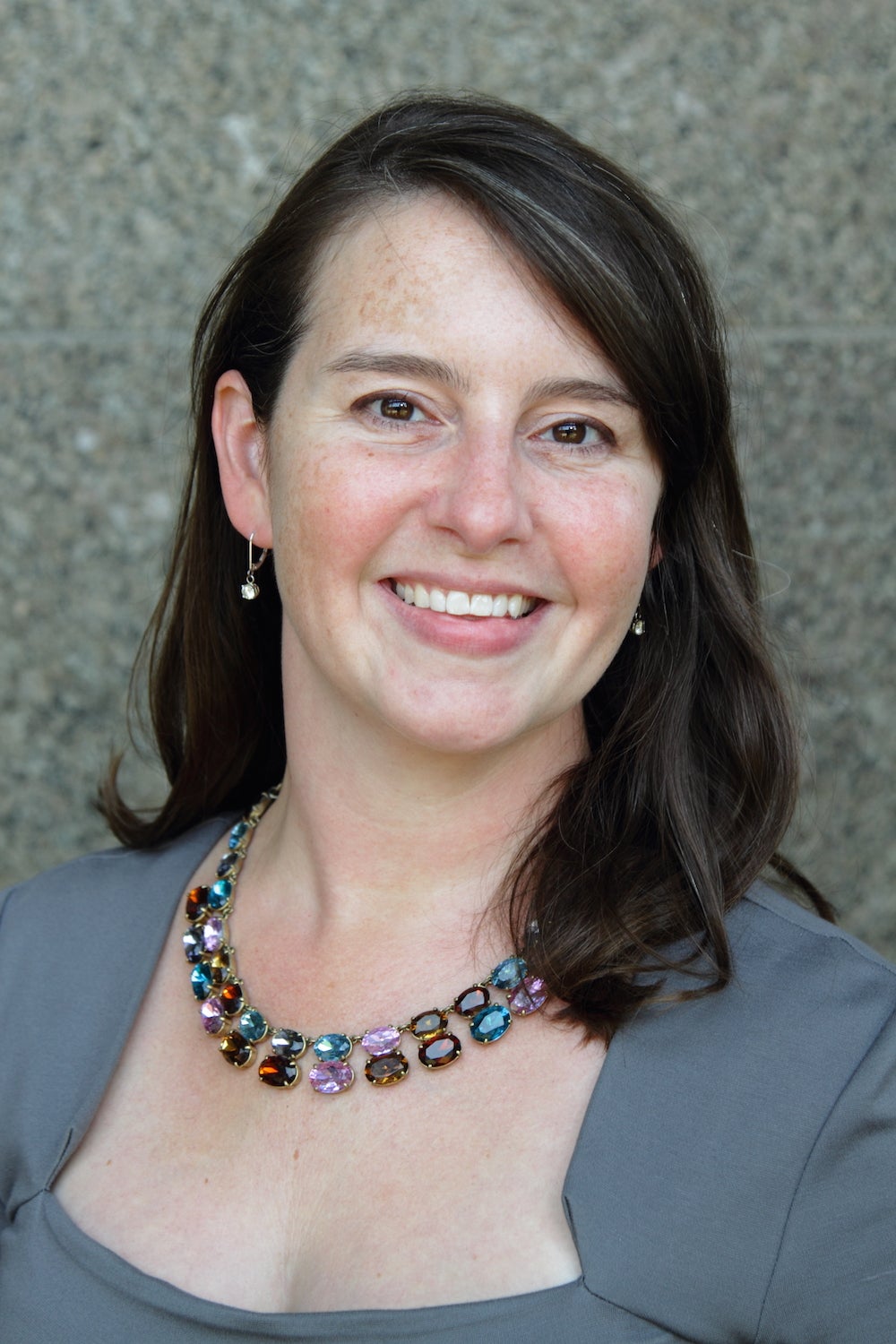
“Immediacy: On Style Lately”
Thursday, February 4, 2021 at 4-6 PM Central Time (via Zoom)
Register in advance for this meeting:
https://uic.zoom.us/meeting/register/tZAvc-6oqzIvHNzPrHhQ5Ri5MntBCx1xKcNH
“Speak your truth” is an Oprah maxim for our age, good advice that also condenses a matrix of contemporary values: self-manifestation, proprietary epistemology, and auto-authorization. Orienting cultural production amid economic privatization and via new media, that matrix encompasses life-style magazines and the broader literary marketplace as well as streaming tv, social networking, college pedagogy, and high theory. This talk names the ubiquitous manifestive style “immediacy” and considers recent works of anti-fictional and anti-theoretical self-writing that significantly alter the long history of the novel and of critical theory, situating these novelties with help from marxist and psychoanalytic frameworks.
Anna Kornbluh’s research and teaching interests center on Victorian literature and Critical Theory, with a special emphasis in formalism, Marxism, psychoanalysis, and theory of the novel. She is the author of The Order of Forms: Realism, Formalism, and Social Space(University of Chicago 2019), Marxist Film Theory and Fight Club (Bloomsbury “Film Theory in Practice” series, 2019), and Realizing Capital: Financial and Psychic Economies in Victorian Form (Fordham UP 2014). Her current research concerns impersonality, objectivity, mediation, and abstraction as residual faculties of the literary in privatized urgent times. She is the founding facilitator of two scholarly cooperatives: V21 Collective and InterCcECT.
Beate Geissler, Associate Professor, Department of Art
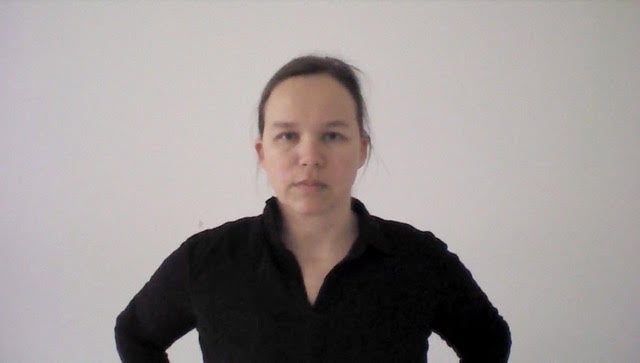
“Hopium Economy”
Wednesday, March 10, 2021 at 4 PM
Register in advance for this meeting:
https://uic.zoom.us/meeting/register/tZIlcOqtpj0qEtXR9_pn1f6XzXhbvej5h9z5
“Hopium Economy” examines substance dependency and/or addiction not only as a metaphor, but as the very engine constituting our societies’ failure to respond to the demands for changes in our time. Climate change is not simply an unintended byproduct of colonial history, but an ongoing act of imperial violence*. A violence set off by the rabid desire of Western societies for goods, things, objects, and substances. Therefore I consider the history of substance dependencies from iron, coal, tea, opium and sugar to gas, I-Phones, methadone, nitrates and opioids as the core motor of the western expansion trajectory. Addiction here seems to be the existential condition sine qua non of violence and pain – cataclysmic and eruptive as much as slow and covert. I believe that such a conception is offering a valuable opportunity to re-think addiction, both as a paradigm and as an object of knowledge. This project is called Hopium Economy because economic growth is an assumption central to our political and economic systems. It is the mechanism relied upon for improving life on Earth for humans based on the belief that there is an escape from the finitude of resources. Hopium economy is the endless and unstoppable dream of becoming.
*Sarah Nelson, The Slow Violence of Climate Change
Beate Geissler is an interdisciplinary artists researcher and educator interested in the question of how human actions transform the planet and how those transformations alter our existence. Her work concentrates on inner alliances of knowledge and power, their deep links in western culture and the escalation in and transformation of human beings through technology. Her work has been exhibited nationally and internationally in museums, galleries, and alternative spaces, including: the Renaissance Society at the University of Chicago; the Museum of Contemporary Photography, Chicago; the Fotomuseum Antwerp; the NGBK (New Society for Visual Arts) in Berlin; the National Taiwan Museum of Fine Arts; the Fotomuseum Winterthur in Switzerland; the Museum Ludwig in Cologne; MAST Foundation in Bologna, Italy; and German Pavillion at the Photography Biennial Dubai, UAE. She has been the recipient of a number of grants and awards, including: the Videonale Award from the Museum of Art, Bonn, Germany; the Herman-Claasen-Award (Cologne, Germany); production grants from the Graham Foundation, Chicago; and she is an active participant of the project Mississippi. An Anthropocene River (https://anthropocene-curriculum.org). She published four monographs: Return to Veste Rosenberg (2006), Personal Kill (2010), Volatile Smile (2013) and the bio-adapter (Oswald Wiener) / you won’t fool the children of the revolution (2019). She is a founding member of Deep Time Chicago an art/research/activism initiative formed in the wake of the Anthropocene Curriculum program at HKW in Berlin, Germany.
Jeffrey Sklansky, Professor, Department of History
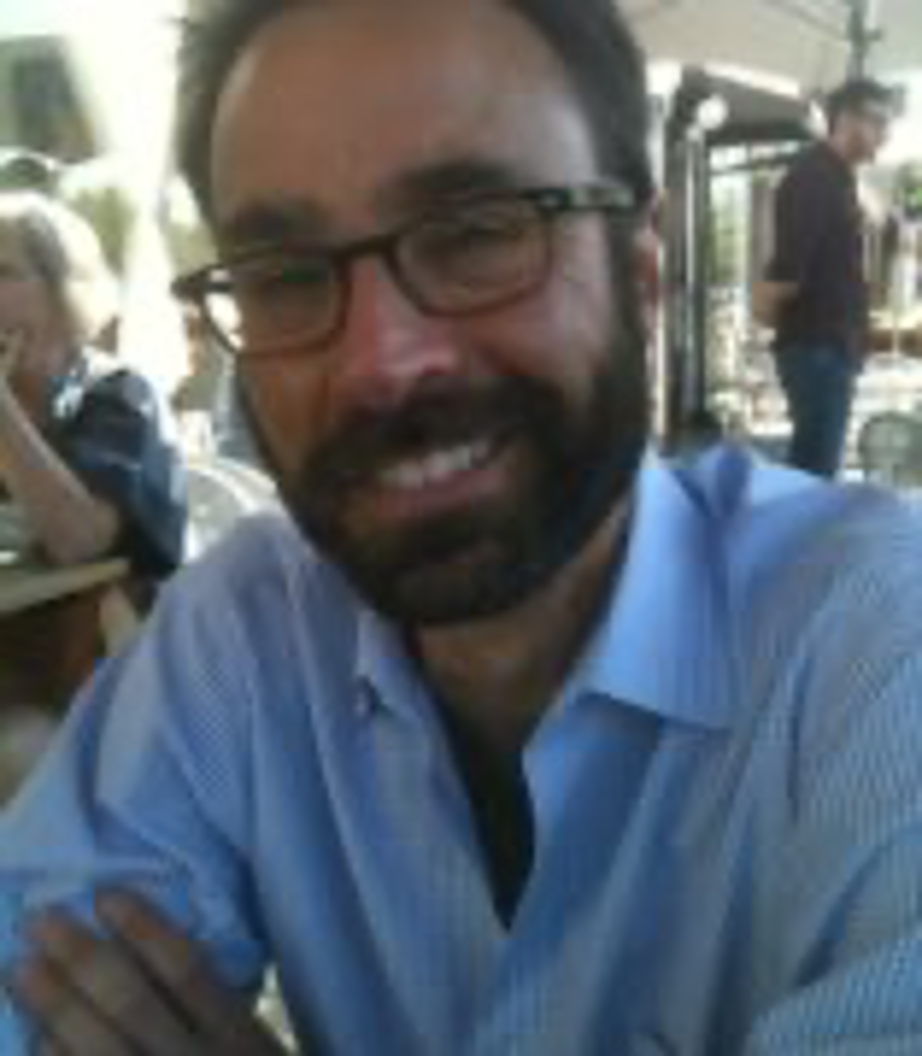
“Strings Attached: Tribal Land Sales in the Nineteenth-Century Midwest”
Thursday, March 18, 2021 at 4 PM
Zoom link: https://uic.zoom.us/meeting/register/tZIsd-CrpjsuGNyqe4ZfHtIm7xRf7oAuUr5C
Nineteenth-century land cessions by Great Lakes tribes marked a new phase in the long conflict over Native property rights. Debates surrounding the treaties between Native nations and the United States determined who could sell tribal land and who could buy it, what rights to the land could be bought and sold and what could count as payment. Creating the two parties to each transaction, defining what each brought to the table, the struggles over the sales gave shape to the newborn nations on both sides of the negotiations along with the forms of property and payment they exchanged.
Jeffrey Sklansky specializes in the intellectual and social history of capitalism in eighteenth- and nineteenth-century America. After graduating from the University of California at Berkeley and receiving his Ph.D. in History from Columbia University, he taught at Oregon State University from 1997 to 2011, when he moved to the University of Illinois at Chicago. He offers courses on the history of capitalism, radicalism in America, and American intellectual history, among other topics. He is the author of two books. The Soul’s Economy: Market Society and Selfhood in American Thought, 1820-1920 (University of North Carolina Press, 2002) traces the fall of classical political economy and the rise of modern sociology, psychology, and allied social sciences in its place. Sovereign of the Market: The Money Question in Early America (University of Chicago Press, 2017) examines the two-hundred-year struggle over what should serve as money, who should control its creation and circulation, and what principles should govern its role in market relations. For potential graduate students, he is currently accepting new students in early American history, intellectual history, labor history, and the history of capitalism.
Yann Robert, Associate Professor, Department of French and Francophone Studies
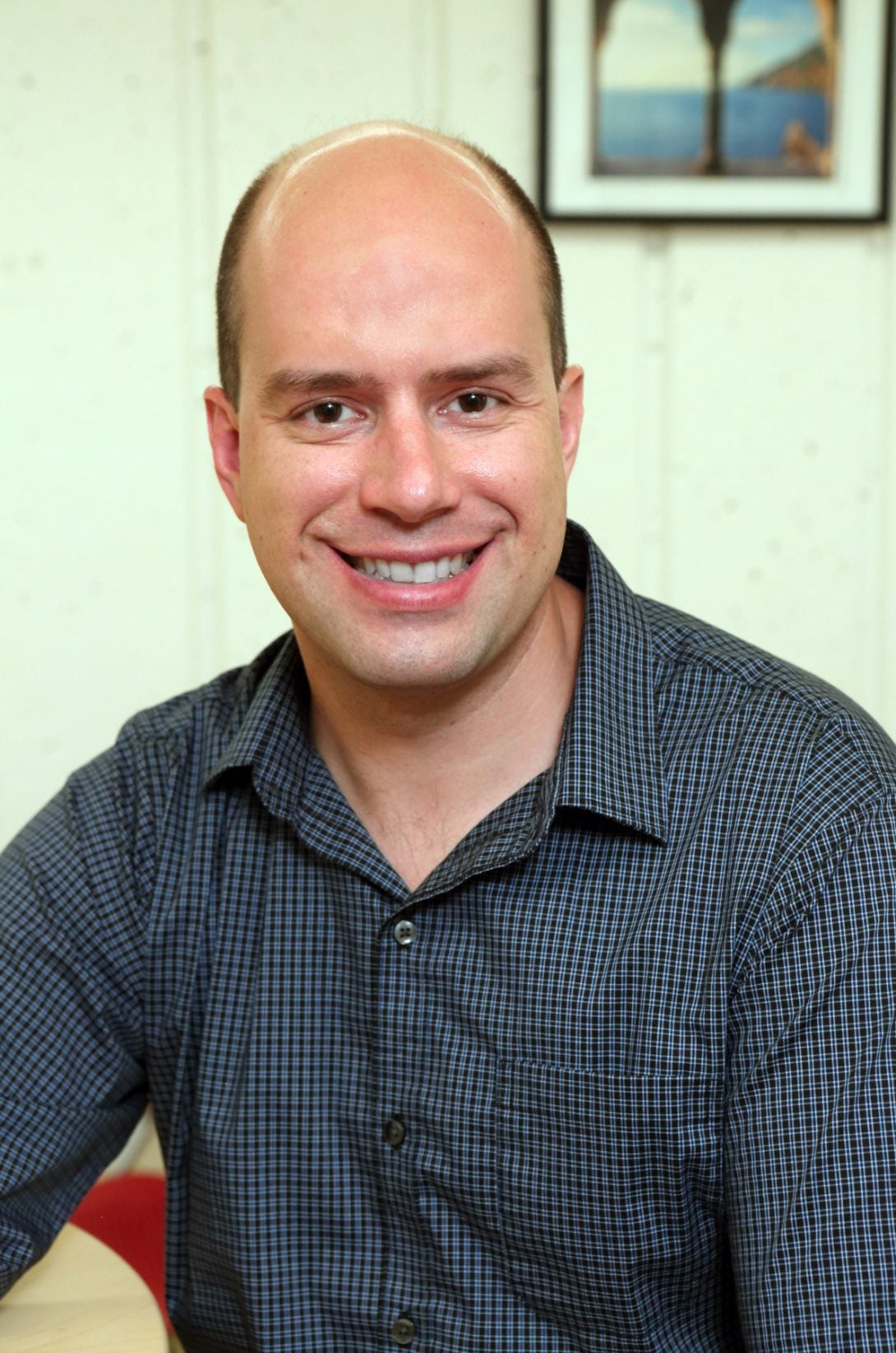
“The First Vigilante: Natural Law, Slavery, and the Killer Cobbler”
Tuesday, April 20, 2021 at 4 PM (Zoom link below)
Vigilantism is widely regarded as a uniquely American phenomenon, originating in the American Revolution and Frontier. Yet the first story about a modern vigilante appeared decades earlier in France. This 1730 tale of a killer cobbler leads me to propose a new genealogy of vigilantism, linking its birth and raison d’être to natural law theory and slavery.
Yann Robert is an Associate Professor in the Department of French and Francophone Studies at the University of Illinois at Chicago. His book, Dramatic Justice: Trial by Theater in the Age of the French Revolution, was recently published by the University of Pennsylvania Press. In 2018, he was awarded UIC’s Rising Star Award in the Humanities, Arts, Design and Architecture. His research examining the interaction between theater, justice, and politics in Enlightenment and Revolutionary France has received support from the Andrew W. Mellon Foundation, notably through a two-year postdoctoral fellowship at Stanford University and a one-year research fellowship at the Newberry Library, as well as from the Jacob K. Javits and the Mrs. Giles Whiting Foundations.
Please register here to receive the Zoom link: https://uic.zoom.us/meeting/register/tZwucOCurzguH9w7m0HcwVTqyt8eJFKBTDlA
